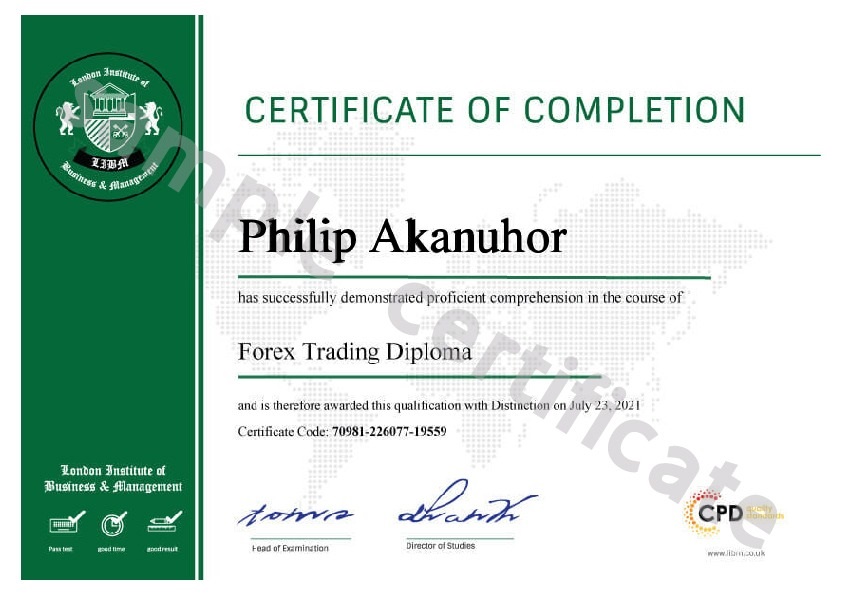- Duration / Course length: Upto 2 Days Start now
- Accredited by: CPD Qualification Standards
- Certificates:
- Course delivery: This course is delivered in video format
Course details
Learn how to manage operations, warehouses, and transport in one comprehensive course. The Transportation and Warehouse Management course will teach you the fundamentals of these sectors through interactive and informative modules. You will gain the essential skills and expertise in a short time.The course will cover the process of operations management and its different phases. You will learn how to analyse gaps and apply Six Sigma principles to improve quality and efficiency. The course will also introduce you to the concepts and practices of supply chain management. You will understand how to optimise the flow of goods and services from suppliers to customers.
The course will also equip you with the key skills and knowledge for warehouse management and transport management. You will learn how to organise, store, and distribute inventory effectively. You will also learn how to plan, execute, and monitor transport operations safely and sustainably.
This course presents a valuable opportunity to acquire a diverse skill set, enhancing your employability in the relevant job market. These skills are designed to boost your performance and productivity in any organisation. Enrol today to propel your career forward.
Key Features of the Course:
- Lifetime access to the course
- No hidden fees, only pay the price of the course which includes exam fees.
- Recognized qualification upon successful completion of the course
- Study from anywhere, anytime, whenever it is convenient for you.
- Affordable and engaging e-learning study materials
- Study at your own pace from tablet, PC, or smartphone
- Online tutor support when you are in need.
Operations Management
Module 01
- Designing Your Organisational Structure
- Introduction to Operations Management
- Understanding Financial Terms
- Getting the Right People in Place
- Getting Your Product Together
- Building a Corporate Brand
- Marketing Your Product
- Selling Your Product
- Planning for the Future
- Goal Setting
- Succession Planning 101
- Managing Your Money
- Ethics
- Building a Strong Customer Care Team
- Training Employees for Success
- Leadership Essentials
- The Fundamentals of Business Process Management
- Defining Business Process Management
- The Business Process Life Cycle
- The Vision Phase
- The Design Phase
- The Modeling Phase
- The Execution Phase
- The Monitoring Phase
- The Optimising Phase
- What is the Gap Analysis?
- The Gap Analysis Process
- Supporting Tools
- Creating a Gap Analysis Report
- Understanding Lean
- The Toyota Production System
- The Toyota Production System House
- The Five Critical Improvement Concepts
- Understanding Value with the Kano Model
- Types of Waste
- Creating a Lean Enterprise
- The Plan, Do, Study, Act (PDSA) Cycle
- Using the R-DMAIC-S Model
- Lean Thinking Tools
- Kaizen Events
- Data Gathering and Mapping
- A Plan to Take Home
- Defining Continuous Improvement
- Stage One – Identify Areas For Improvement
- Stage Two – Create a Plan for Improvement
- Stage Three – Implement the Changes
- Stage Four – Review the Impact
- Test Driving
- Six Sigma Basics
- Improvement Tools
- Management Tools for Generating Ideas
- Continuous Improvement
- Customer Relationships
- The Evolution of the Supply Chain
- The Basic Supply Chain Structure
- Supply Chain Drivers
- Aligning Your Supply Chain with Business Strategy
- Managing Supply Chain Risks
- Tracking and Evaluating Supply Chain Data
- Troubleshooting Supply Chain Problems
- Sharing Supply Chain Activities
- Sustainable Supply Chain Strategies
- Applying Lean Techniques to the Supply Chain
- The Future of Supply Chain Management
- Supply Chain Management Basics
- The Purchasing Cycle
- Purchasing Toolkit
- Managing Competitive Bids
- Improving Efficiency and Accuracy
- Analyzing and Reducing Risk in the Supply Chain
- Managing Internal Relationships
- Tools of the Trade
- What is Inventory?
- Types of Inventory
- Key Players
- Setting up the Warehouse
- What Makes a Good Inventory Management System?
- The Warehouse Inventory Cycle
- Identifying Demand
- The Receiving Process
- Validating Inventory
- The Put-Away Process
- Maintaining Inventory Accuracy
- The Outbound Process
- Industry Trends
- Concept of Quality
- Key Terms
- Categories
- Customer Input
- Plan Quality
- Design of Experiments
- Quality Control
- Control Charts
- Sampling
- Six Sigma
- Next steps
- The 6 Six Sigma Challenges
- Fundamentals of Warehouse Management
- Warehousing: Function, Benefits and Types of Warehousing
- Core Functions Of A Warehouse Management System
- Challenges Of Warehouse Management
- Technology In The Warehouse
- Supply Chain Management Concepts
- Warehouse Management Technologies to Adopt
- Processes In Warehousing
- Managing Warehouse Inventory
- Organize the Storage of Inventory in a Warehouse
- Inventory Management Techniques
- Inventory Control Flow of Processing
- Logistics and Supply Chain In A Warehouse
- Inventory Classification In The Warehouse
- The Role Of Human Resource management In A Warehouse
- Warehouse Safety
- Warehouse Cost Management
- Improve Warehouse Efficiency and Reduce Costs
- An Introduction to Successful Transport Management
- The UK’s Travel Infrastructure – Road and Rail
- Road Freight and Transport Management
- Passenger Road Transport and its Management
- Rail and Transport Management
- Transport Management for Ports and Inland Waters
- Transport Management for Airlines
- Trends, Challenges and Best Practice in Transport Management
- Transport Management and Health and Safety
- Understand the process of operations management
- Familiarise yourself with the basics of business process management
- Learn about the different phases of business process management
- Acquire the skills and knowledge for gap analysis
- Enrich your understanding of Six Sigma basics
- Build the essential expertise for supply chain management
- Learn the strategies of warehouse management
- Know the functions, benefits, and types of warehousing
- Explore the vital aspects of transport management
- Familiarise yourself with UK’s travel infrastructure
Eligibility / Requirements
Enrollment in this course is open to anyone with any academic background, and no prior experience or qualifications are necessary for participation.
Job roles this course is suitable for:
Logistics Manager , Supply Chain Analyst , Warehouse Operations Supervisor , Transportation Coordinator , Distribution Center Manager , Inventory Control Manager , Fleet Manager , Logistics Consultant , Warehouse Manager , Operations ManagerAbout London Institute of Business & Management
London Institute of Business and Management provide comprehensive courses related to Microsoft Office ,business and other. Microsoft Office is the most popular program that is used by most of the administrative positions around the world. It is the combination of several applications like Microsoft Word, Microsoft Excel, Microsoft Access, Microsoft PowerPoint and Microsoft Outlook. Each has their specific functionality. Unlike other institutions, London Institute of Business and Management provide Microsoft Office Management courses with a special focus on the use of Microsoft Office programs in the business world.Finally, London Institute of Business and Management include courses related to administrative positions like Personal Assistant, Secretary and virtual assistant course. These courses will help you to gain knowledge and skills required to deal with day-to-day responsibilities that may be encountered when you are in these post.
In short, we offer comprehensive courses related to Microsoft Office, Business .With the classes, we try to help students to achieve their business and corporate goals. The course also assists people to obtain particular career ambitions. We believe that the right training for the right candidate helps them to gain their objectives and prosperity.





